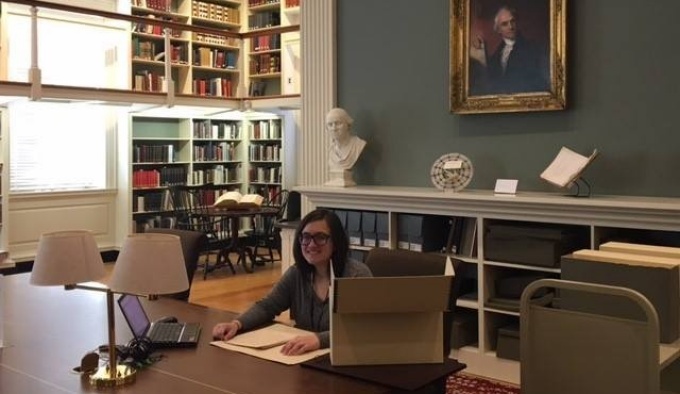Experiential Learning Opportunities

“For the things we have to learn before we can do them, we learn by doing them.”
― Aristotle, The Nicomachean Ethics
Students engaged in graduate work in the Department of History don't simply memorize names and dates. They become historians as they learn by doing the work of history: researching, writing, interpreting, and teaching. Students studying at all levels practice their historical skills by leading discussions and conducting primary research. In the public history concentration, students make connections with local museums and historical institutions, where they learn how to interpret and display the past for the public. In the past, our students have designed exhibits for local museums, developed historical site markers, and conducted oral histories, among other exciting and important projects.
Each spring, the Graduate History Association organizes a graduate student conference that offers MA and PhD students the opportunity to practice a major skill for professional historians: presenting and discussing their research. The department also awards conference travel funds to qualified students to encourage students to practice their speaking skills and network in their fields. Our PhD students also receive generous fellowships that allow them to travel for research, ranging from a quick trip to Washington, D.C. to months of intensive research in China and the United Kingdom.
For many intent on graduate work in history, the goal is a career in education. Our doctoral students, and some qualified MA students, learn historical pedagogy first hand through grading and teaching assistantships that train them to become effective and engaging instructors of students of all ages. Students learn the fundamentals of post-secondary education, such as classroom management and facilitating productive discussions, by leading their own undergraduate discussion sections.
History is more than repeating facts, and we place great emphasis on ensuring that our students are prepared for their future careers by honing their skills in hands-on practice.
Contact
For more information, contact the Department of History